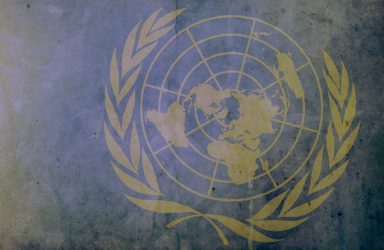Human Rights and Democracy Amidst Militarized COVID-19 Responses in Southeast Asia
We need to be cautious of the forms of suppression and violence justified in a time of crisis, because they may indicate the emergence of a politics of intolerance and cruelty.
History Shows Us That Open Diplomacy Is Best
It is too early to evaluate the impact of WikiLeaks on world affairs. But more than ever in this changed and more porous world, Woodrow Wilson’s call for “open covenants, openly arrived at” remains a superior guide to foreign policy to Machiavelli’s recommendation that governments be strong like a lion but also clever like a fox. It may be that WikiLeaks goes too far, but enlightened policy makers should welcome publication of how good decisions—and bad—came about.
Is Decolonisation Always a Violent Phenomenon?
In the cases of 20th century decolonisation, violence was an unavoidable means to overthrowing a violent system.
Is the Nationalist Ideal still at the Heart of Politics in the 21st Century?
“Nationalism”, asserts Fred Halliday, “has been one of the formative processes of the modern world”[1]and many argue that nationalist ideology continues to play an important part in the political discourse and decisions of the developed and developing world. In the dialogue of this essay I will; briefly define the ‘nationalist ideal’ and the complications such a definition raises; examine the nature of contemporary nationalism and whether this can be ascribed as ‘new nationalism’; ascertain the impact that modernity and globalisation has on the nationalist ideal; and present a discussion on the relevance of nationalism in the conduct of politics in the United States, with particular focus upon the internationalist scope of American nationalism and the need to securitize subjectivity in times of uncertainty and existential anxiety.
Community-Based Natural Resource Management and Global Climate Change in Namibia
It is important to adequately unpack community-based natural resource management as a form of resource governance and to analyze the politics that are involved in it.
Opinion – Taiwan Could Be to China What Canada Is to the US
If Beijing were willing to learn from the American example, it could pave the way to a relationship with Taiwan comparable to that of the US with Canada.
The Arab Uprisings: Opportunities and Challenges for Iran
The ongoing people’s uprisings in the Arab countries against autocratic rulers have provided Iran with both challenges and opportunities in the Middle East and beyond. Will these momentous events enhance Iran’s foreign policy opportunities, or will they ultimately lead to further isolation and strategic loneliness for Iran?
The Afghan Peace Talks, China, and the Afghan Elections
As the United States pulls back from international commitments, and Afghanistan continues to be internally unstable, China is glad to step in.
Will Governments Lose Monetary Control to Facebook’s Libra Cryptocurrency?
Libra may struggle to impact markets unless they adopt a very aggressive strategy of below-cost pricing and are more efficient and much less costly than existing systems.
Creating an Environment for Nuclear Disarmament
CEND could play a leading role to the comprehension of states’ rivalries and threat perceptions that compel them to achieve technological efficiency and sufficiency.





